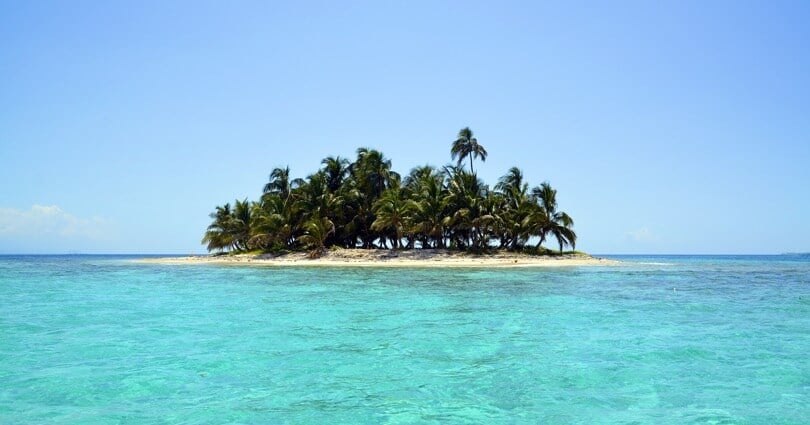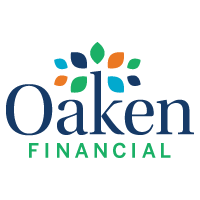Best ETFs for 2025: Desert-island ETF picks
The MoneySense 2025 Best ETF panellists each get to pick a fund they’d leave in their portfolios if they were stranded somewhere and unable to touch their investments.
Advertisement
The MoneySense 2025 Best ETF panellists each get to pick a fund they’d leave in their portfolios if they were stranded somewhere and unable to touch their investments.

Say you were stranded on a desert island for an indefinite period. Where would you want your money to be invested, compounding like magic until you get rescued? We asked each of our judges to name an exchange-traded fund (ETF) out of the blue that typically wouldn’t rise to the top of our other asset categories.
These desert island picks may not make good core components of a diversified portfolio, but they represent a potential opportunity to generate higher returns (or provide additional risk protection) with a small allocation—less than 10%, typically—of your financial assets. Here’s what our panellists told us:

Get up to 3.00% interest on your savings without any fees.

Lock in your deposit and earn a guaranteed interest rate of 3.40%.

Earn 4.50% for 5 months on eligible deposits up to $500k. Offer ends January 31, 2026
MoneySense is an award-winning magazine, helping Canadians navigate money matters since 1999. Our editorial team of trained journalists works closely with leading personal finance experts in Canada. To help you find the best financial products, we compare the offerings from over 12 major institutions, including banks, credit unions and card issuers. Learn more about our advertising and trusted partners.
The panellists favourite picks.
Normally, you’d need to take on more risk to obtain higher returns. But this medium-fee (0.39% MER) fund has, over the years, allowed unitholders to have their cake and eat it, too, says Dong. Using a rules-based implementation of a low-beta screen for TSX equities, ZLB has “historically outperformed the S&P/TSX 60 with shallower drawdowns and lower volatility,” Dong says. In spite of this year’s tariff-related volatility, it’s up 5% as of mid-April.
This U.S.-listed ETF, with a low MER of 0.06%, invests in high-quality U.S. dividend payers with strong cash flows and a value tilt, offering total return plus dividend safety. “Generally, I don’t believe in dividend investments, but during high-volatility times, like we are living right now, high dividends help you close your eyes, ignore the fluctuations of the market, and see a dividend cheque coming in at the end of the month,” Guillot says.
Has the markets’ performance since the start of U.S. President Donald Trump’s second term got you thinking we might be in for years of the same? ALLW holds a variety of asset classes including inflation-linked bonds, nominal bonds, gold, stocks and commodities designed to preserve wealth even in adverse conditions, by imitating iconoclastic investor Ray Dalio’s famous “all weather” portfolio. “It’s expensive at 0.85% (MER),” McGrath allows, “but it’s something you could hold at all times and never look.”
“Water is a long-term investing theme for me, as I believe water has been growing as a key resource as climate change evolves and I believe the next great conflicts will be over water not oil as many countries grapple with depleting water resources,” Raina says, noting that Trump has alluded to America’s need for water on several occasions. This ETF, which invests in a basket of global water utilities, offers investors “slow, steady and boring returns that during our current times could provide a nice anchor from the geopolitical storms.”
Instead of a desert-island keeper, panellist Sam Rook opted to identify the kind of ETF he thinks Canadian investors should avoid like a poisonous puffer fish, specifically Defiance Daily Target 2x Long Microstrategy ETF (MSTX). “Using leverage on a stock that is itself a leverage play on bitcoin is a recipe for sadness for investors with a long-term mindset,” Rook warns. Oh, and the MER is 1.29%. This ETF is listed stateside, but with the majority of new ETFs listing in Canada tending to be actively managed, sometimes employing needlessly convoluted strategies, let this be a reminder to buyer beware.
Launched last year, EQCC offers reliable monthly income through a covered-call strategy on global equities. It holds a diversified mix of established companies and sells options to generate additional cash flow. Robertson says: “It’s a solid pick for income-focused investors who also want exposure to the stock market.”
“Stuck on a desert island, if I had to pick just one ETF to own to hold for the foreseeable future, for growth, this is it,” Seed says. In addition to simplifying your stock market exposure with automatic rebalancing, it delivers consistent income of more than 2% per year. Seed thinks it has the best geographic balance of all the global equity funds at 47% U.S., 33% International and 20% Canada. He also likes the bit of tech exposure that is built-in, since it allocates 7% to the NASDAQ-100. It also has an impressive five-year annualized return as of March 2025 exceeding 16%. Finally, you won’t miss out on tech exposure as it allocates 7% to the NASDAQ 100. He’s owned it since 2018, and holds it in his locked-in retirement account (LIRA), since it simplifies stock market exposure with automatic rebalancing. “It delivers a small yield of about 2% that fits with my desire to obtain a blend of income and growth across my portfolio.”
Tretiakova thinks the revolution wrought by artificial intelligence still has room to run, and “Nasdaq exposure is the most cost-effective way to play AI.” As for the fund, she likes the corporate class structure of this offering from Global X. “Even though there are slightly cheaper alternatives, the tax efficiency angle of HXQ makes up for the extra basis points.”
“The battle for artificial general intelligence (AGI) and the roll-out of AI agents and tools will reshape industries the way electricity did 125 years ago,” Yamada predicts. “The Nasdaq is where the action will be. HXQ’s derivative structure defers tax until you get off the island and sell.”
Watch: ETF Academy Lesson 9Share this article Share on Facebook Share on Twitter Share on Linkedin Share on Reddit Share on Email